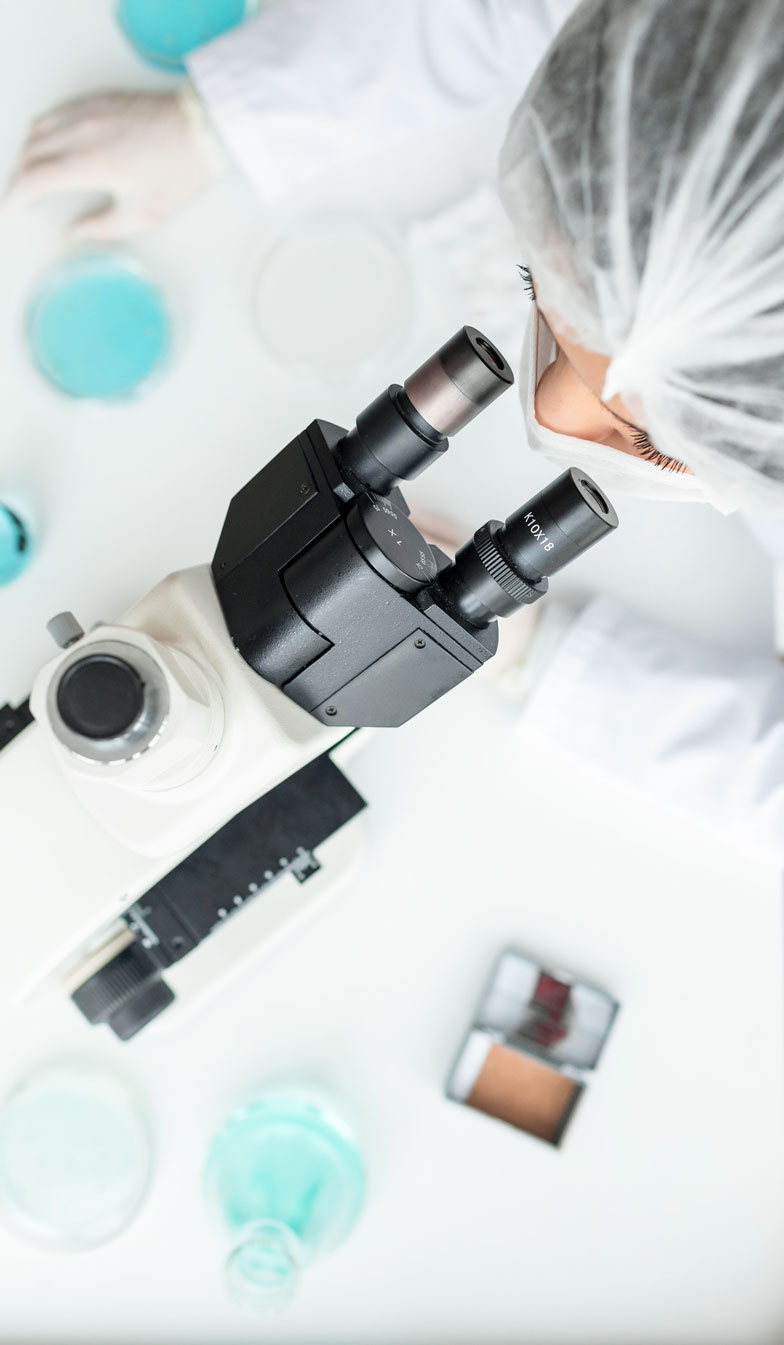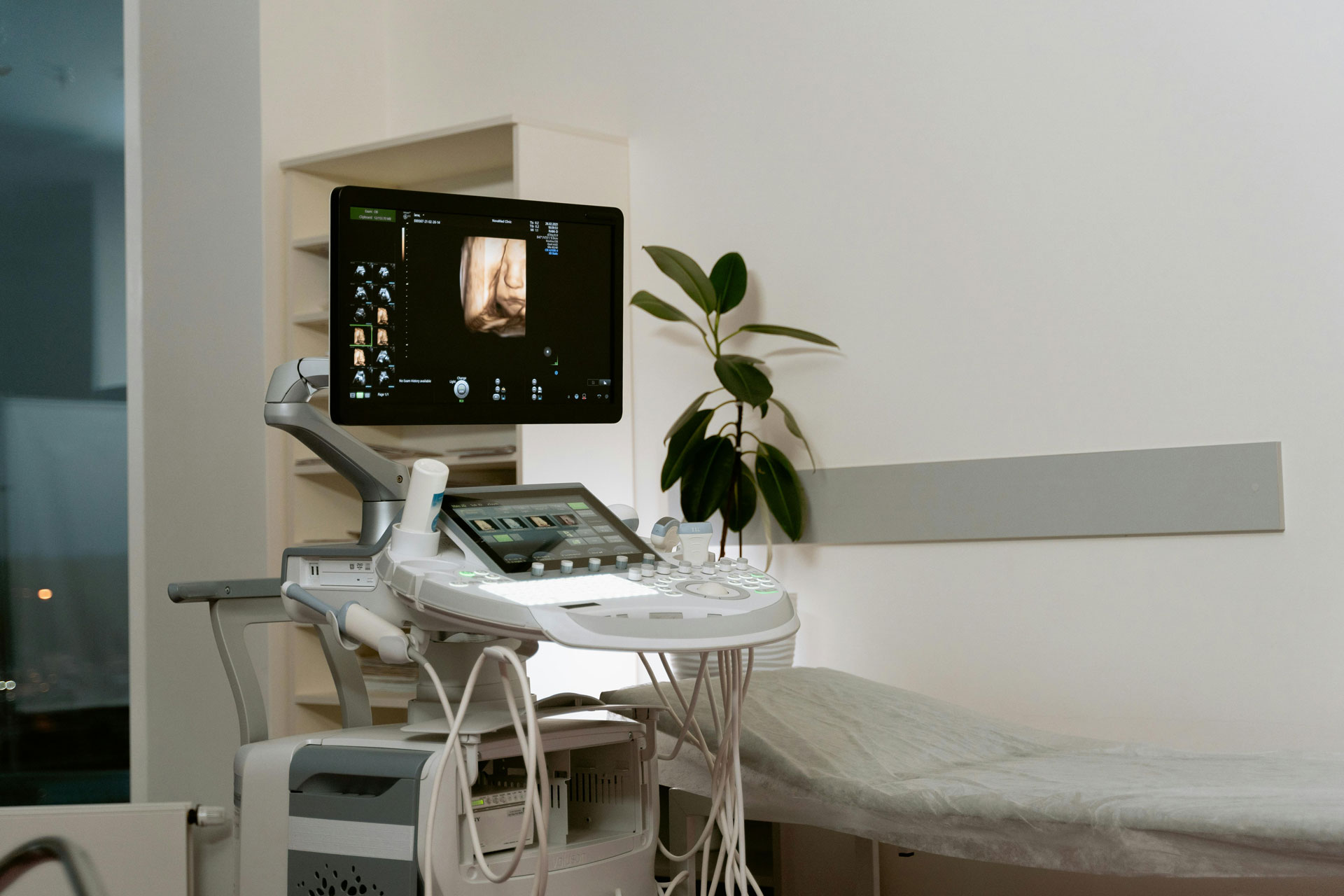BAJA FERTILITY SERVICIES
Preimplantation
Genetic Testing (PGT)
about
Preimplantation Genetic Testing (PGT)
At Baja Fertility Services, we offer Preimplantation Genetic Testing (PGT) to ensure that the embryos selected for transfer are free of specific chromosomal and genetic abnormalities. This advanced screening allows for a detailed evaluation of embryos before implantation, significantly increasing the chances of a healthy pregnancy.

What is PGT?
PGT (Preimplantation Genetic Testing) is a genetic analysis performed on embryos before they are transferred to the uterus. Its purpose is to detect:
•Aneuploidies: Abnormalities in the number of chromosomes.
•Monogenic Mutations: Changes in specific genes that can cause genetic diseases.
•Structural Rearrangements: Translocations and other chromosomal structural abnormalities.
Types of PGT
1. PGT-A (Aneuploidy):
This test identifies abnormalities in chromosome number, detecting embryos with missing or extra chromosomes. It helps prevent implantation failure and miscarriages.
2. PGT-M (Monogenic Mutations):
Detects mutations in specific genes responsible for hereditary diseases, allowing for the selection of embryos free of these conditions.
3. PGT-SR (Structural Rearrangements):
Identifies translocations and other structural chromosome abnormalities, ensuring the transfer of embryos with normal chromosomal structure.
Genetic Testing for Embryo
Sex Selection
At Baja Fertility Services, we understand that some couples wish to have the option of selecting the sex of their embryos as part of their assisted reproduction journey. We use Preimplantation Genetic Testing (PGT) to offer this possibility, giving our patients greater flexibility in family planning.
What is Embryo Sex Selection?
This process allows couples to choose the gender of their future child by evaluating embryos before they are transferred to the uterus. The procedure is performed in combination with PGT to ensure that the selected embryos are not only free of chromosomal abnormalities but also match the desired sex.

Genetic Testing for Embryo Sex Selection
Sex Selection Process
1. Sample Collection: During the in vitro fertilization (IVF) process, samples are taken from the embryos created.
2. Genetic Analysis: We use advanced techniques to determine the sex of the embryos. This is performed alongside chromosomal analysis to ensure the embryos are genetically normal.
3. Selection of Desired Sex: Based on the analysis results, embryos of the preferred sex are selected for transfer.
4. Embryo Transfer: The selected embryos are transferred into the uterus, increasing the chances of a successful and healthy pregnancy.
Preimplantation Genetic Testing (PGT)
Key Benefits
At Baja Fertility Services, we are committed to offering the most advanced assisted reproduction technologies to provide our patients with the best possible chances of success on their journey to parenthood.
• Improved Success Rates:
By selecting genetically normal embryos, the chances of successful implantation and a healthy pregnancy are significantly increased.
•Reduced Risk of Miscarriage:
Transferring embryos with a correct chromosomal structure lowers the risk of early pregnancy loss.
• Prevention of Genetic Diseases:
Helps prevent the transmission of serious hereditary conditions.
• Personalized Treatment:
An approach tailored to the genetic needs of each couple.
• Family Planning Customization:
Enables couples to select the gender of their child based on personal preferences.
• Greater Control:
Provides an additional level of control in the assisted reproduction process.
CONTACT
PLAN YOUR VISIT
Book Your Appointment
The first step is to contact us and schedule your consultation.
Prepare Your Medical Information
Gather your medical history and a list of questions to discuss with your doctor.
Attend Your Initial Consultation
Make sure to arrive on time with all the necessary documentation.
CONTACT
BOOK YOUR APPOINTMENT
We are here to support you on your journey to parenthood. Booking an appointment with us is the first step toward receiving the care and support you need.
GET IN TOUCH
If you have any questions or need more information before scheduling your appointment, feel free to contact us. We are here to help.
LOCAL PHONE
664 635-8427
PHONE FROM THE U.S:
001 619 4003830
+52 664 166 9569
info@bajafertility.com
ADDRESS
Torre Norte 2: Fray Servando Teresa de Mier 1351, local 601, Zona Urbana Río Tijuana, Tijuana, B.C.
FAQ
Frequently Asked Questions
What are the causes of infertility?
They can be social or medical in nature. Among the social causes are the delay in seeking to have children and the stress experienced by both men and women in daily life. Among general medical causes, we find extreme obesity, anorexia nervosa, serious illnesses, thyroid disorders, substance and medication abuse, alcohol and tobacco use, and chemotherapy. About 20% of cases remain unexplained.
Medically, the most common conditions affecting women are issues with the Fallopian tubes, ovulation disorders, uterine cavity abnormalities, and endometriosis, among others.
In men, the issues typically involve sperm count, motility, and abnormal sperm morphology.
Is infertility only present in women?
Although many people associate infertility with women, it actually occurs with equal frequency in both men and women.
Do I need to bring my laboratory tests? What are they used for?
It is important. If you have already been in consultation or treatment for infertility, you should bring any tests you have previously undergone, such as hormonal tests, ultrasounds, X-rays (such as hysterosalpingography), semen analyses, among others.
Before starting an assisted reproduction treatment cycle, you will be required to have HIV testing, hepatitis B blood tests, hepatitis C blood tests, and VDRL testing for syphilis.
It is important to bring your test results if you have them; otherwise, the clinic will schedule them on the appropriate days for their performance.
Medically, the most common conditions affecting women are issues with the Fallopian tubes, ovulation disorders, uterine cavity abnormalities, and endometriosis, among others.
In men, the issues typically involve sperm count, motility, and abnormal sperm morphology.
Antes de comenzar un ciclo del tratamiento de reproducción asistida se le pedirá análisis de VIH, de la hepatitis B; Análisis de sangre para hepatitis C. VDRL para prueba de sífilis.
Es importante llevar sus exámenes si los tiene, en caso de no tenerlos en la clínica se programaran en sus respectivos días ideales para realizarse.
En cuanto a lo medico, las situaciones que más se alteran en la mujer son Trompas de Falopio, Ovulación, Cavidad uterina, endometriosis entre otras.
Y en el varón, el numero de esperma, motilidad, formas anormales. De los mismos espermas.
What will happen at my first fertility consultation?
Bring the following with you if applicable:
Make a list of all your questions so you won’t forget them when you are with your doctor.
A history of your fertility (summary of any previous treatments).
If you have undergone fertility treatment elsewhere, you have the right to request a report from that clinic detailing your treatment history.
Blood test results.
Semen analysis results.
Reports from previous examinations such as X-rays or any surgeries you may have had.
The initial consultation lasts approximately one hour, and your partner should attend with you. You should arrive 15 minutes before your appointment to fill out a form and have your vital signs taken before seeing the doctor.
A complete and comprehensive medical history will be taken from both partners, if applicable. A nurse will be present during any gynecological examination. If necessary, the husband will be asked to provide a semen sample for analysis (he can also request to provide the sample later if he is uncomfortable doing so on the day of the appointment).
In which cases is Artificial Insemination recommended?
It is generally recommended when sperm count or motility is low, after failed induction and intercourse treatments, or after endometriosis treatments.
Is age important when undergoing assisted reproduction treatment?
Assisted reproduction has given us greater opportunities to welcome a new loved one into our homes; however, pregnancy is not 100% guaranteed. Age is a very important factor for success. The recommended age range is between 20 and 35 years old. After this age, ovarian reserve begins to decline significantly, reducing the chances of pregnancy and increasing the risk of genetic abnormalities, such as Down syndrome.

